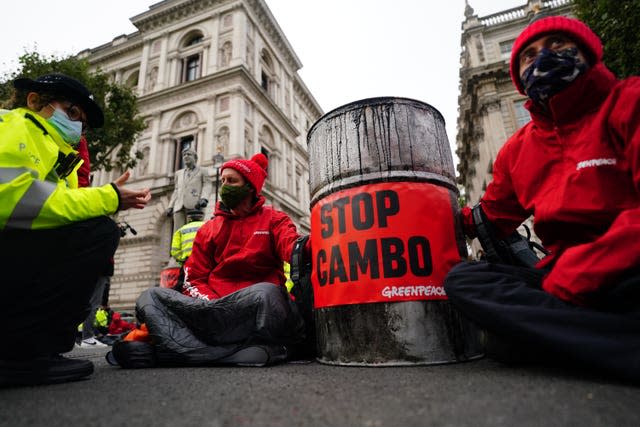Blocking Cambo oil field would risk leaving UK at mercy of global shortages
Blocking long-planned energy projects like the controversial Cambo oil field would risk leaving the UK at the mercy of global energy shortages, industry experts have warned.
OGUK, the trade body which represents the UK’s offshore oil and gas industry, has said that if new projects are not approved the country would become increasingly reliant on foreign supplies, and warned that this could leave people exposed to global energy shortages and soaring prices.
Deirdre Michie, chief executive of OGUK, said: “If we cut our own supplies of gas and oil faster than we can reduce demand then we will have to import more of what we need. Our import bills will go up without any reduction in emissions.
“This means we need to develop new oil and gas reserves simply to maintain domestic production.
“These new projects will help protect customers, supply the UK with lower carbon energy, reduce our need for imports and support 200,000 people working in the industry as it transitions to greener low-carbon future.”

The chief executive said the oil and gas industry is committed to helping the UK Government’s “ambitious next zero goals” but the “transition must be managed”.
Her comments came just days after Nicola Sturgeon said the oil field, off the coast of Shetland, should not be given the go-ahead.
The First Minister voiced her strongest opinion so far on the proposed development, and said: “I don’t think that Cambo should get the green light.”
Ms Sturgeon had previously urged the UK Government to reassess the plans, amid growing concern over the impact of fossil fuels on climate change.
But speaking at Holyrood on Tuesday as she updated MSPs on the Cop26 summit in Glasgow, Ms Sturgeon said: “I don’t think we can go on extracting new oil and gas forever, that is why we have moved away from the policy of maximum economic recovery.
“And I don’t think we can go and continue to give the go-ahead to new oil fields. So I don’t think that Cambo should get the green light.”
However she stressed it was the UK Government that has final approval on the development, and said by calling for its reassessment she had “set out a process by which a different decision could be arrived at”.
The OGUK said that if projects like Cambo are not approved UK production would drop, and gas output would fall by 75 per cent by 2030, which would mean the economy which mostly relies on fossil fuels for energy production would be dependent on foreign supplies.
The trade body said the oil field would help meet the country’s energy demands while the UK Government plans to reduce fossil fuel usage, plans OGUK said would take years to implement.
It added Cambo would help meet this demand, and claimed the projects in the pipeline would be among the world’s cleanest oil and gas projects.
A UK Government spokesman said that no other “significant oil and gas producing nation has gone as far as the UK in supporting sector’s gradual transition to a low carbon future”.
“While we are backing the UK’s oil and gas industry’s transition to green energy, there will continue to be ongoing but diminishing need for oil and gas over the coming years while we ramp up renewable energy capacity, as recognised by the independent Climate Change Committee,” the spokesman said.
“What we cannot have is a cliff-edge where oil and gas are abandoned overnight. Turning off the taps would put energy security, British jobs and industries at risk and we would be even more dependent on foreign imports.
The spokesman said the Cambo oilfield was originally licensed in 2001, and added: “Development proposals for oil fields under existing licences are a matter for the independent expert regulators. No decision has been taken yet.”

 Yahoo Finance
Yahoo Finance 